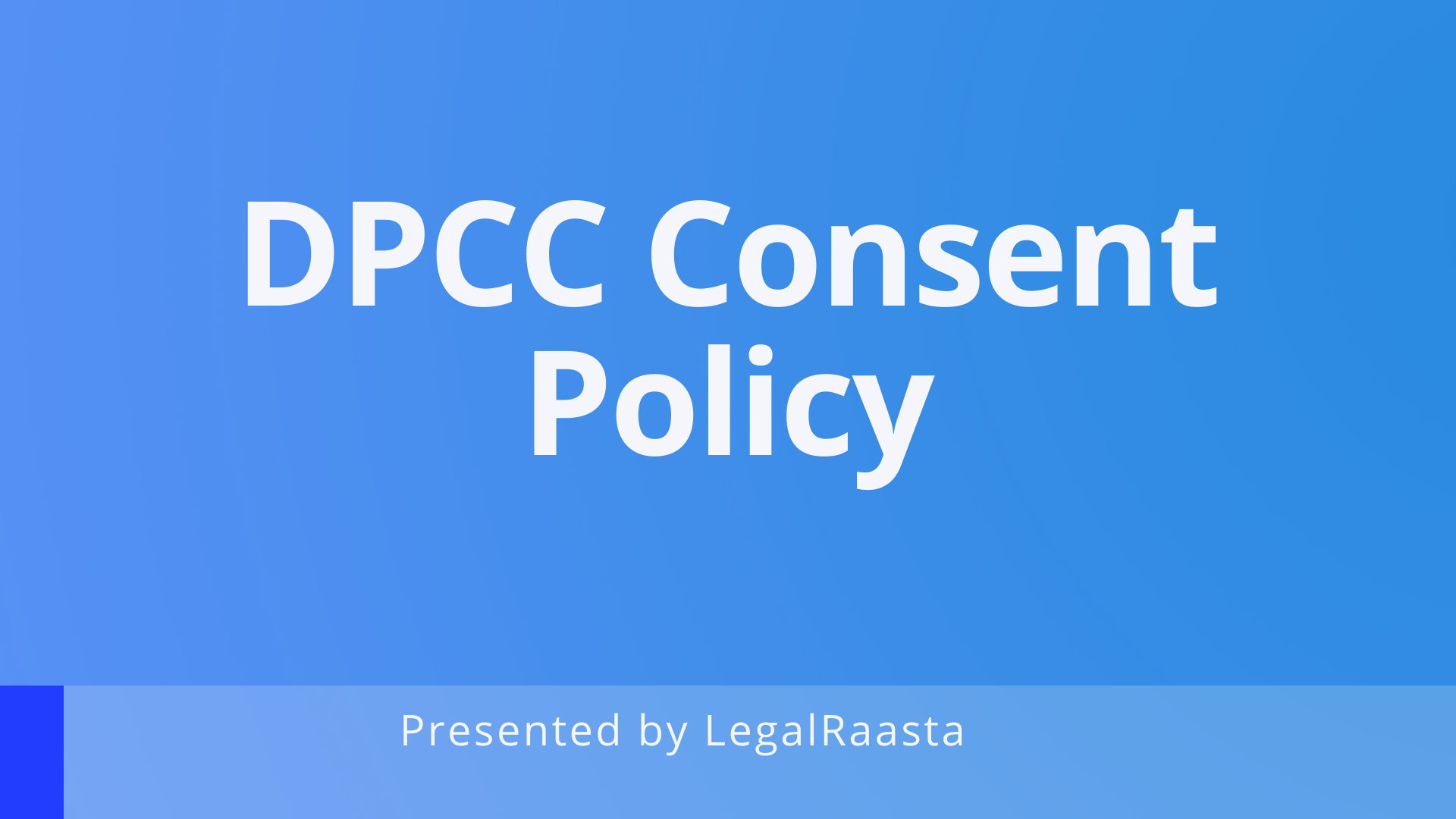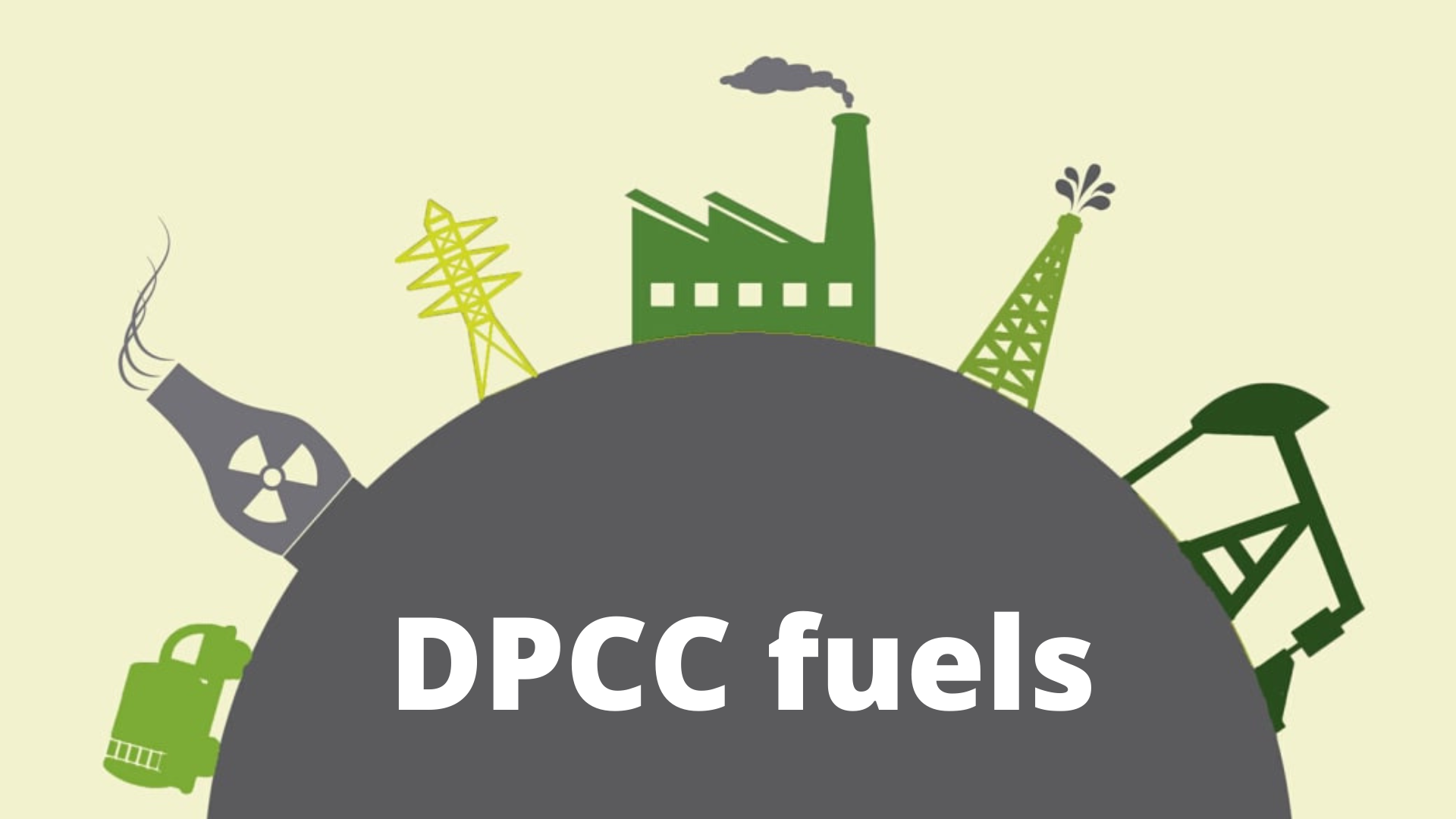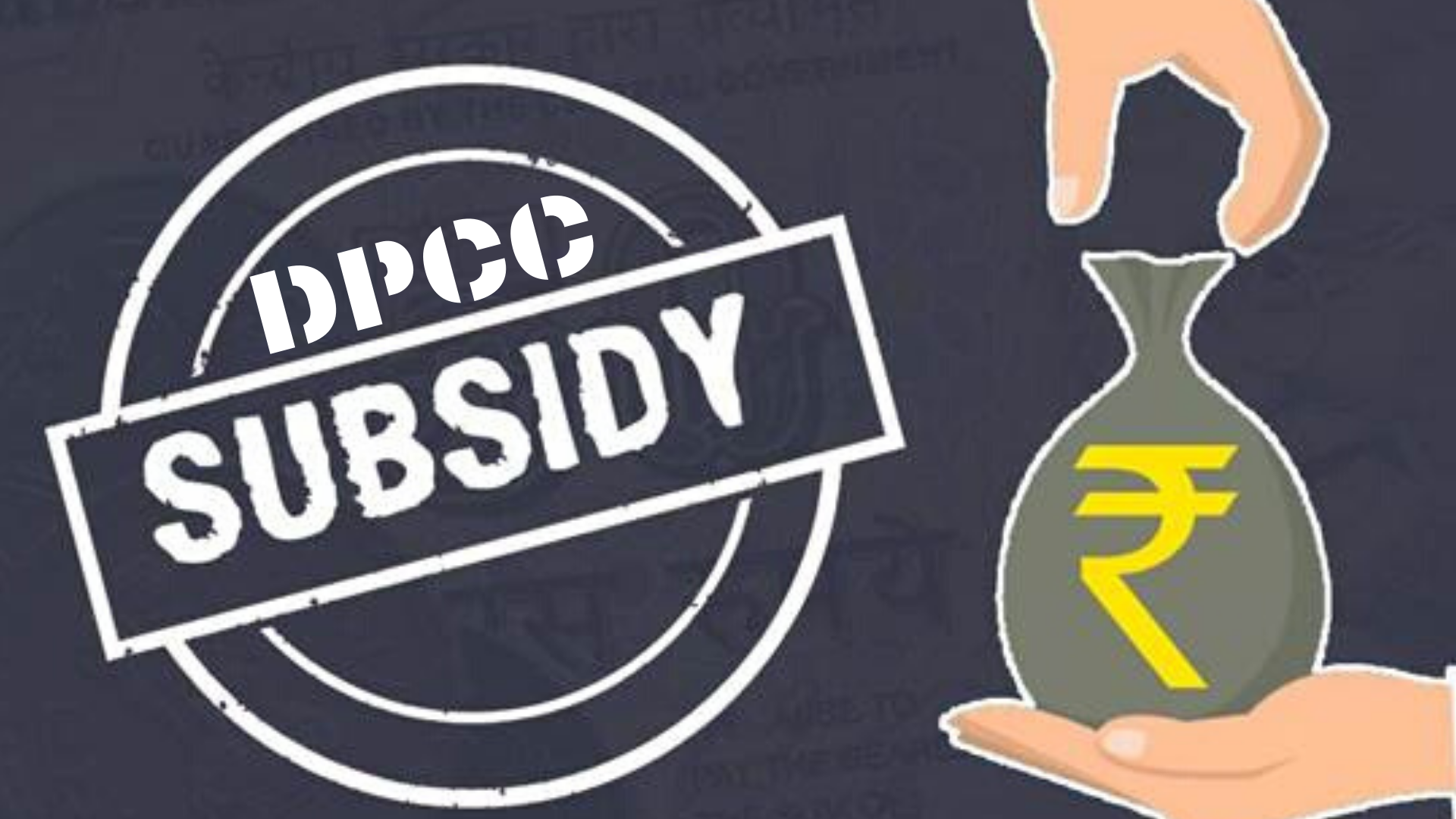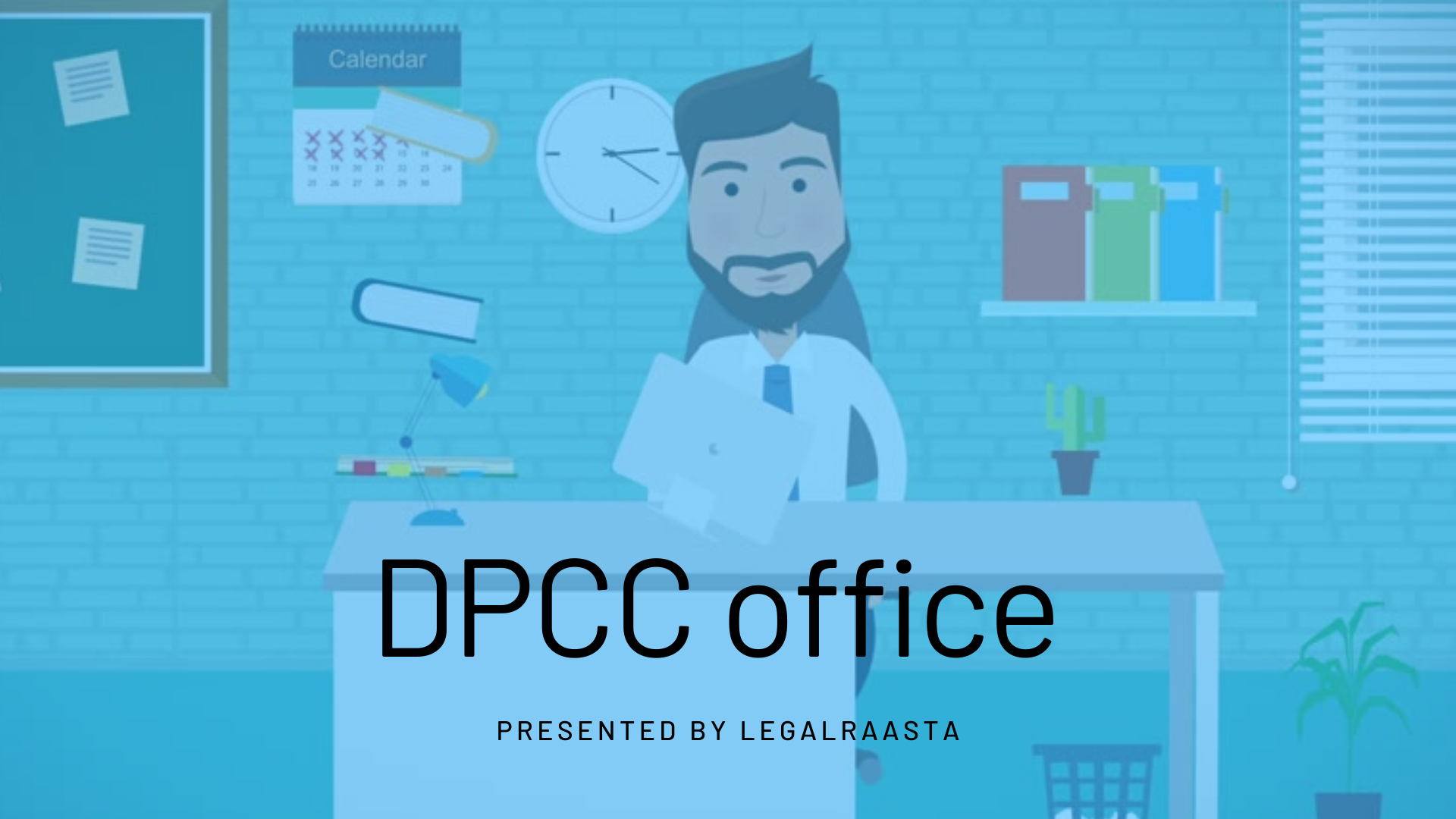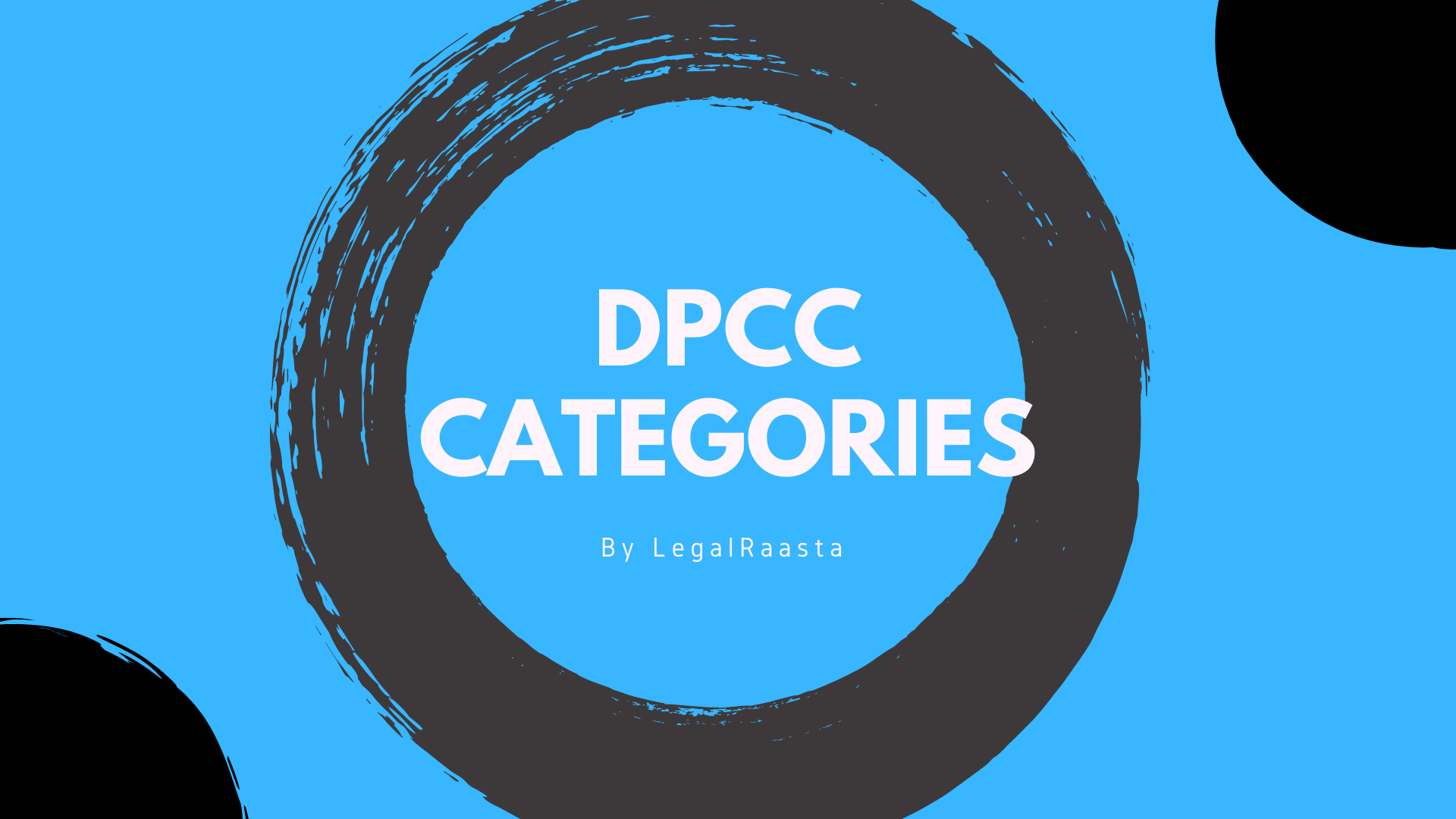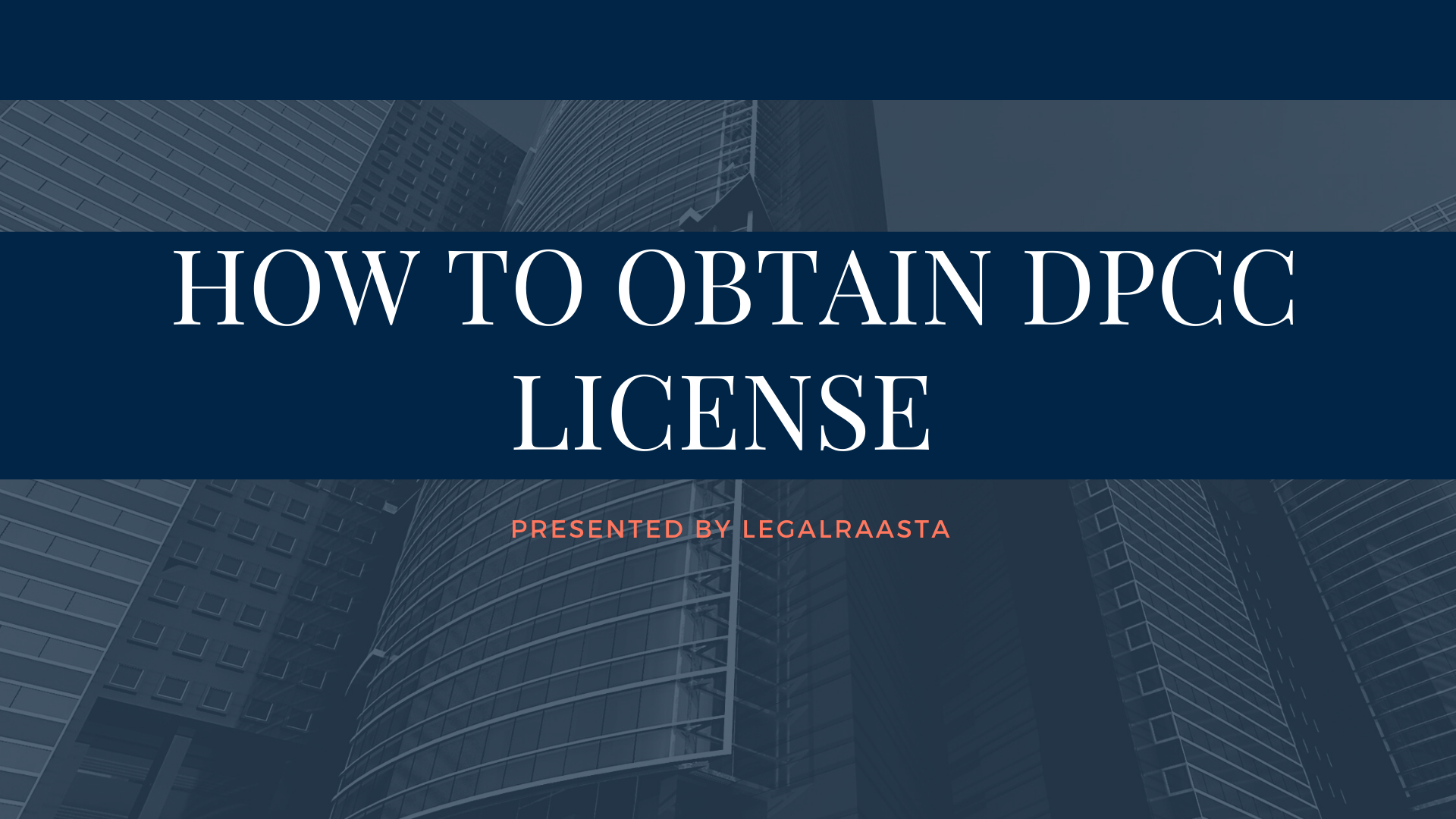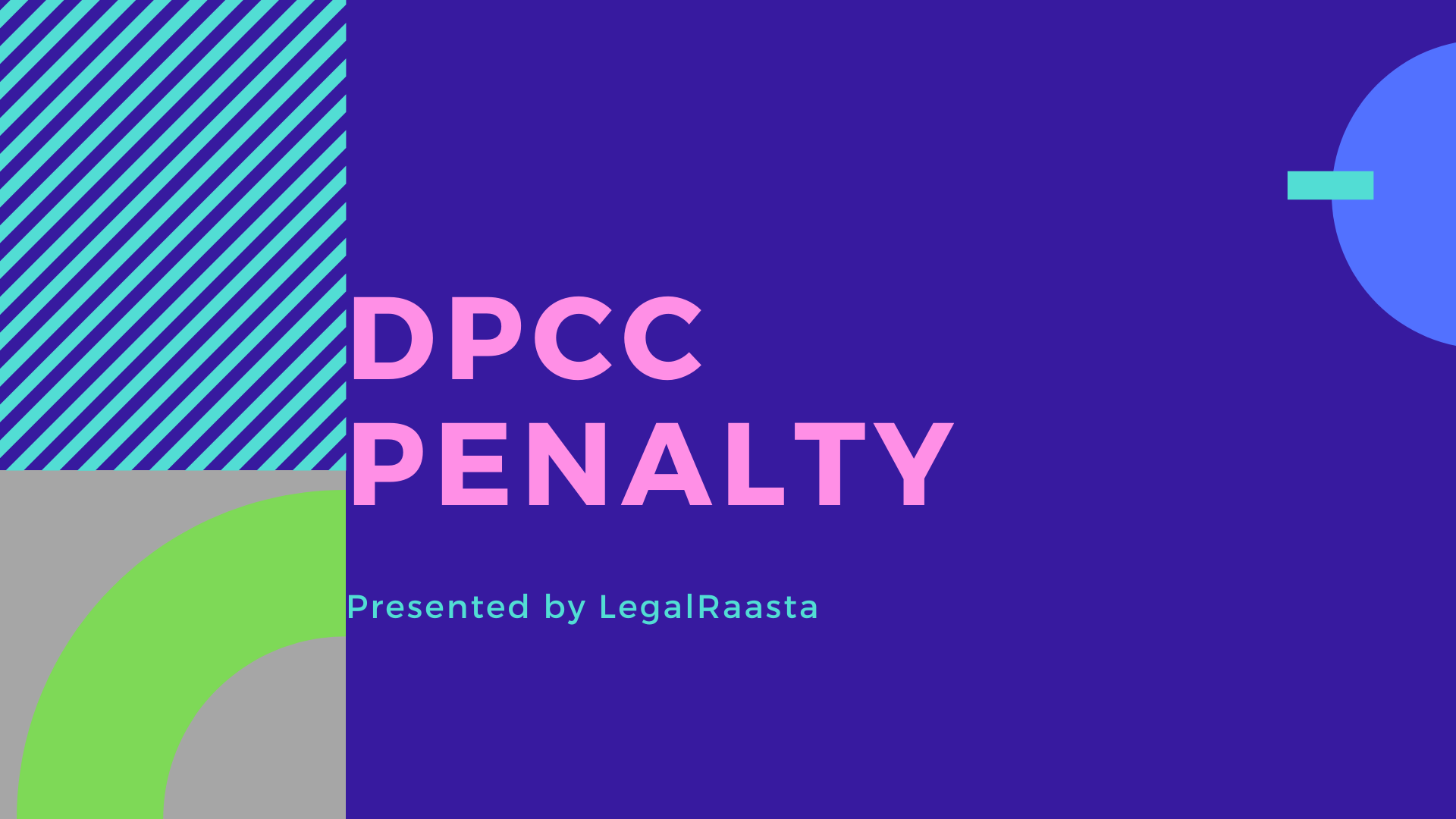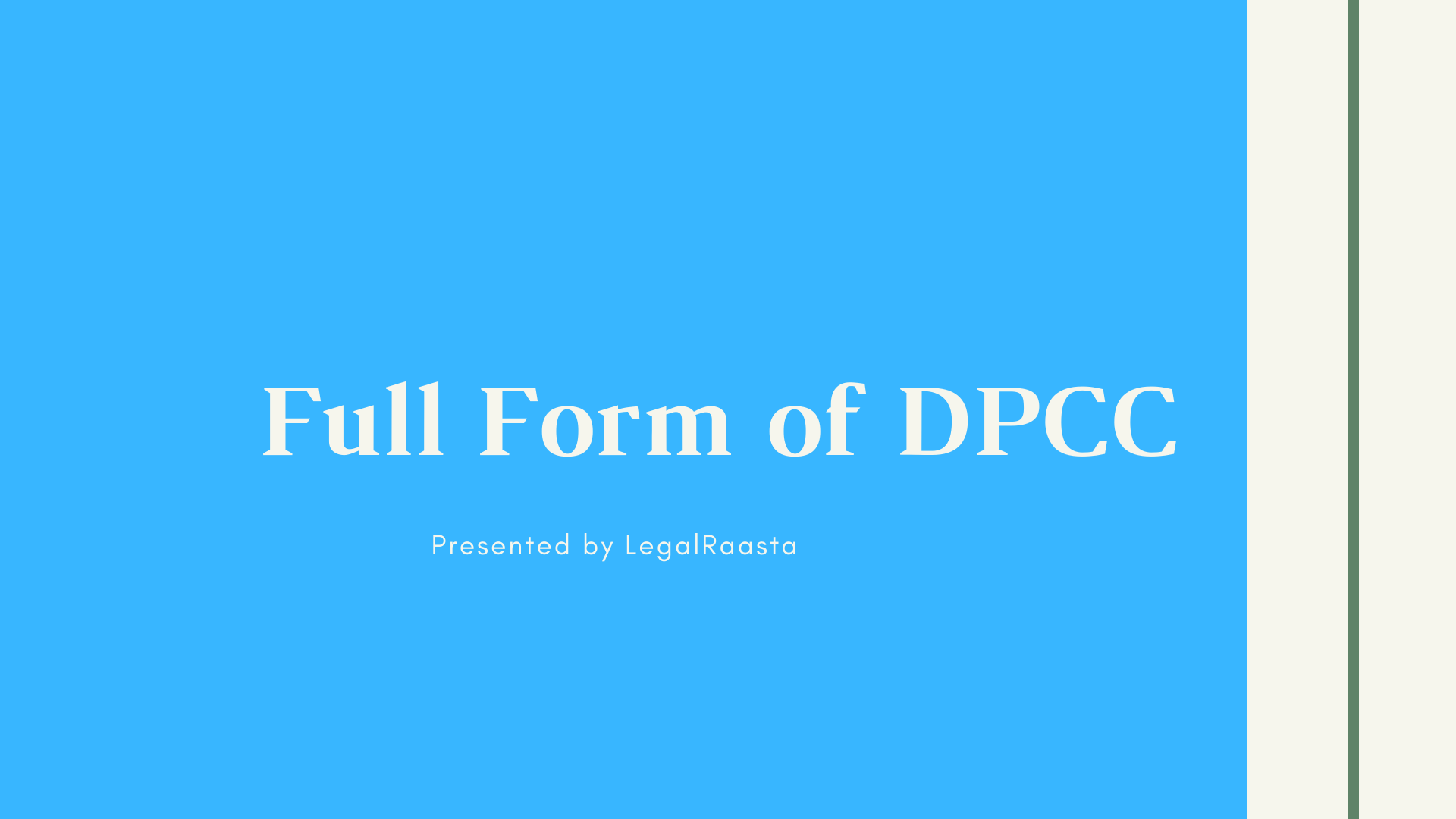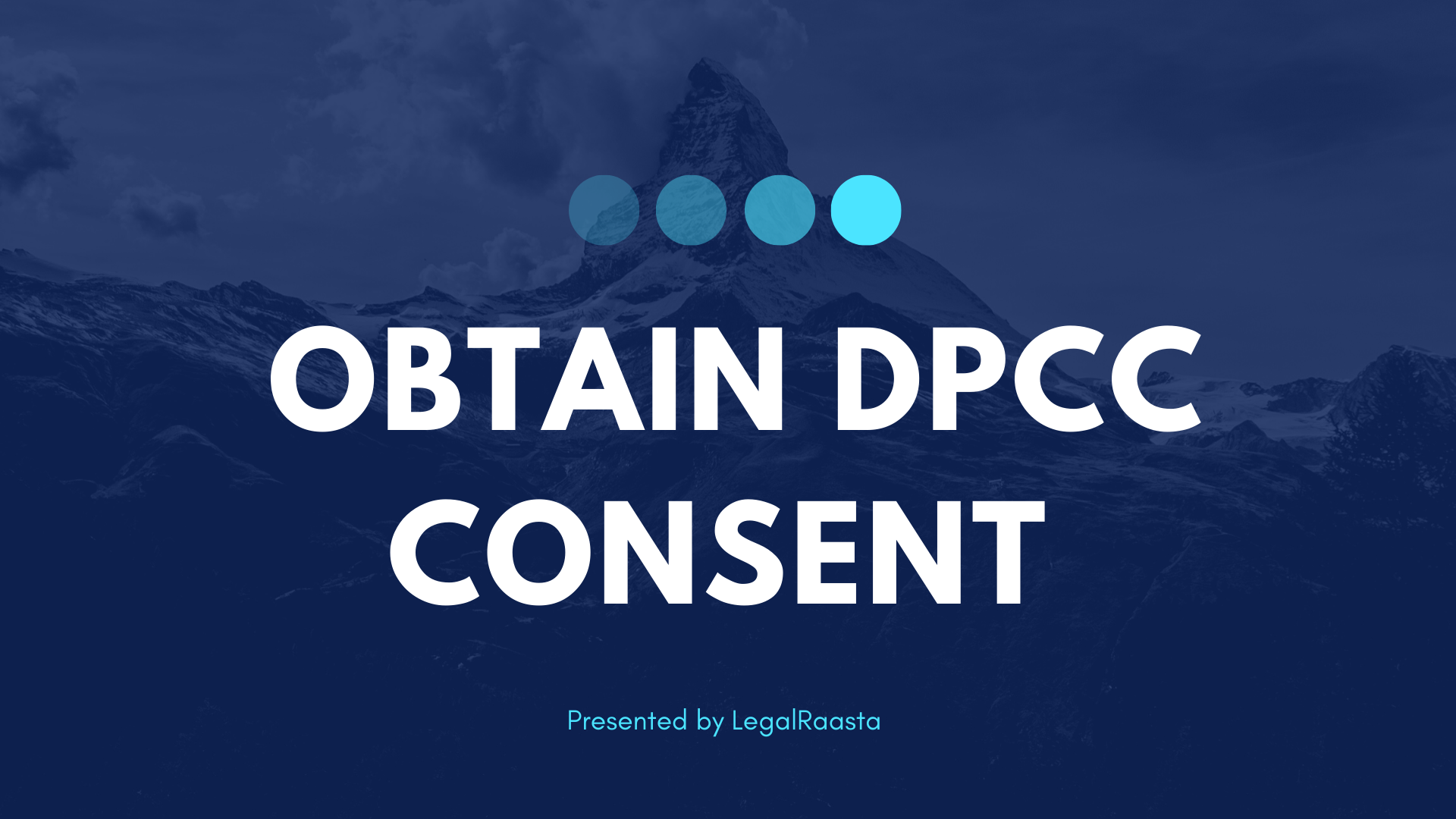DPCC Consent policy
DPCC consent policy
DPCC consent policy is the policy used by the DPCC while allotting the licenses. Delhi government formed DPCC or Delhi Pollution Control Committee on 1st June 1991, under the supervision of the Central Pollution Control Board. All the powers of CPCB have been delegated to the DPCC. While creating this organization, it was kept in mind that it will create awareness about sustainable development by ensuring improvement in the 'environment quality' of the NCR.DPCC consent
As per section 19 (1) of the Air (prevention and control of pollution) Act, Delhi has been declared as the Air Pollution Control Area. Because of this, no industrial plant (the plant used for industrial or trade purposes) is allowed to emit any pollutant (solid, liquid or gaseous substance) into the environment without the prior consent of the State Pollution Control Board/ Committee (as the case may be). And it also means that no industry is to either establish or operate without the previous consent of the DPCC. This certificate works as a bond from the industries that it would work in such a way that it won’t harm the environment. This certificate becomes an absolute must to have in case the industry is to discharge waste in sewer, land, well or stream.DPCC Consent policy for Consent to Establish
Consent to establish is the first step for any industry/trade (including activities involved in manufacturing processor and/or emitting pollution, by way of water/air/noise pollution). According to the DPCC consent policy, Consent to Establish is a certificate that every industry must obtain according to the Water Act, 1974 and Air Act, 1981. As the name suggests it is a certificate that should be obtained before establishing the industry. It is valid for 1 year only. But if an industry is not able to establish before 1 year, then it can apply for renewal for the same. In case, renewal is not filed in due time, the industry has to apply for a consent to establish certificate again. Consent to establish contains the following 5 sections:- General
- Wastewater aspects
- Air emission aspects
- Hazardous waste aspects
- Additional information
Water Pollution
Water pollution involves activities that change the physical, chemical or biological properties of water or such discharge of any sewage or trade effluent or any other liquid, gaseous or solid substance into the water. It also includes the activities that are to create a nuisance or render such water harmful or injurious to public health or safety or domestic, commercial, industrial, agricultural or other legitimate uses.Air Pollution
Air pollution is indicated by the presence of any air pollutant (including the noise) in the atmosphere.Consent details
Any unit falling under the orange and white category is to obtain both the consents to function. In case it is permissible, then the unit is to apply the consent in a prescribed format given here. DPCC charges Rs.100/- for offline consent. The industry owner is to submit the following documents to further the process:- Demand Draft
- Affidavit in prescribed format duly attested by a notary public
- Application Form
- A project report should be submitted too. Various details including the details of the unit, proposed capital investment, number of workers & employees, manufacturing process in detail with a flow chart, raw materials, products and byproducts, details of water consumption & discharge, source of wastewater/emissions and proposed pollution control system/measures as applicable.
- Layout plan
- Location of the plan
- Address proof/allotment letter/lease deed (as the case may be). In case it is a rented property, then rent agreement and ownership of premises.
DPCC Consent policy for Consent to Operate
The Water Act, 1974 and Air Act, 1981 also mentioned details about consent to establish. Any industry falling under the orange and green category is to obtain Consent to Operate after the Consent to Establish. This certificate is valid for 5 years in the case of the Orange category and 10 years in the case of Green category industries. After the validity expires, the industry is to get it renewed with the DPCC. According to the DPCC consent policy, DPCC will grant consent to establish within a period of 4 months of receipt of the application of consent. The state board shall by order in writing, and for reasons to be recorded in the order, grant the consent applied for subject to such conditions and for such period as may be specified in the order or refuse the consent altogether. Consent to operate is provided, once the DPCC is satisfied that all other formalities such as MCD license, Power-water connection, CETP membership (in case CETP membership exists) have been through. The industry owner is to submit the application in the prescribed manner along with the following documents:Green category CTO (Renewal)
- Demand draft
- Affidavit in prescribed format duly attested by the notary public
- A certificate from Chartered Accountant (w.r.t. column 5 consent form)
- Noise monitoring report (if applicable)
- A proof of Common Effluent Treatment Plan membership in the name & address of the unit (if applicable)
- Either original or copy of the previous consent order
Orange category CTO (renewal)
In addition to the list of documents given above, the industry owner is to submit these documents:- Detailed manufacturing process with flow chart
- A complete list of raw materials used, products manufacture and the by-products generated during the process with maximum quantity/day.
- Effluent Treatment Plant (ETP) report of adequacy
- ETP effluent analysis report
- Electronic Cleaning Service (ECS) report of adequacy
- Stack monitoring report(s), if applicable
For Air Act (1981)
| S. no. | Total Capital Investment (in Rs.) | Annual Consent Fee (in Rs.) |
|---|---|---|
| 1 | Up to Rs.5 lakhs | Rs.250/- |
| 2 | Rs.5-20 lakhs | Rs.500/- |
| 3 | Rs.20 lakhs to 1 crore | Rs.1,000/- |
| 4 | Above Rs.1 crore | Rs.2,000/- |
For Water Act (1974)
| S.no. | Average Water Consumption per day in Kiloliter | Annual Consent fee (in Rs.) |
|---|---|---|
| 1. | 0-10 | Rs.200 |
| 2. | 10-50 | Rs.300 |
| 3. | 50-100 | Rs.400 |
| 4. | 100-500 | Rs.600 |
| 5. | 500-1,000 | Rs.800 |
| 6. | 1,000-5,000 | Rs.1,200 |
| 7. | 5,000-10,000 | Rs.1,600 |
| 8. | 10,000-50,000 | Rs.2,400 |
| 9. | 50,000-1,00,000 | Rs.3,200 |
| 10. | 1,00,000-5,00,000 | Rs.4,800 |
| 11. | 5,00,000-10,00,000 | Rs.6,400 |
Related articles Everything to know about DPCC Registration for clinics DPCC categories for all industries DPCC Documents required for license[fusion_builder_container alt="" admin_label="" hundred_percent="no" equal_height_columns="no" menu_anchor="faq" hide_on_mobile="small-visibility,medium-visibility,large-visibility" class="" id="" background_color="#eee" background_image="" background_position="center center" background_repeat="no-repeat" fade="no" background_parallax="none" enable_mobile="no" parallax_speed="0.3" video_mp4="" video_webm="" video_ogv="" video_url="" video_aspect_ratio="16:9" video_loop="yes" video_mute="yes" video_preview_image="" border_size="" border_color="" border_style="solid" margin_top="0" margin_bottom="" padding_top="" padding_right="" padding_bottom="" padding_left="" admin_toggled="no"][fusion_builder_row][fusion_builder_column type="1_1" layout="1_1" spacing="" center_content="no" hover_type="none" link="" min_height="" hide_on_mobile="small-visibility,medium-visibility,large-visibility" class="" id="" background_color="" background_image="" background_position="left top" background_repeat="no-repeat" border_size="0" border_color="" border_style="solid" border_position="all" padding_top="" padding_right="" padding_bottom="" padding_left="" margin_top="" margin_bottom="" animation_type="" animation_direction="left" animation_speed="0.3" animation_offset="" last="no"][fusion_text] [/fusion_text][/fusion_builder_column][fusion_builder_column type="1_1" layout="1_1" spacing="" center_content="no" hover_type="none" link="" min_height="" hide_on_mobile="small-visibility,medium-visibility,large-visibility" class="" id="" background_color="" background_image="" background_position="left top" background_repeat="no-repeat" border_size="0" border_color="" border_style="solid" border_position="all" padding_top="" padding_right="" padding_bottom="" padding_left="" animation_type="" animation_direction="left" animation_speed="0.3" animation_offset="" last="no"]
Frequently Asked Questions
[fusion_separator style_type="shadow" hide_on_mobile="small-visibility,medium-visibility,large-visibility" class="" id="" sep_color="" top_margin="" bottom_margin="" border_size="" icon="fa-chevron-circle-down" icon_circle="yes" icon_circle_color="#2d95cf" width="" alignment="center" /][fusion_text]What is the mode of payment for the consent?
What is the duration of the fee paid for the Consent to Establish?
When is the consent fee paid for each category?
What are the rules of DPCC consent to operate for the white category?
What is the difference between Consent to Establish and Consent to Operate?
My company is involved in the trading business. For this, do I need to get consent?
In case of a warehouse business, is consent required?
Our industry is not water/air polluting in nature. Do we require DPCC consent?
Who all are eligible for consent?
What is the main purpose of DPCC consent?

